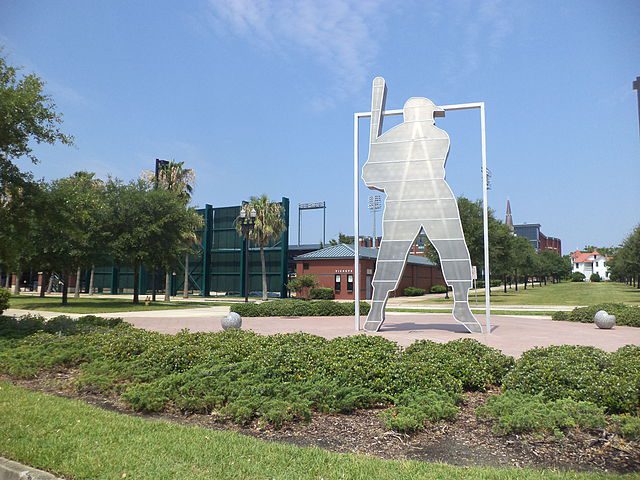Baseball Books, Searching for Hitler, and Hitchhiking with Dostoevsky

It’s baseball season. Michael Brendan Dougherty explains why we love the game. Joseph Bottum reviews a mittful of new baseball books.
At the end of the Second World War, it was at first unclear what had happened to Adolf Hitler. Hugh Trevor-Roper was asked to investigate: “During the war he had shown himself to be an exceptionally able and determined intelligence officer. Now, though still only 31, he was given the authority of a major-general to undertake his inquiry, pursuing the evidence wherever it led. It was an extraordinary experience for a young historian, to be licensed to explore the ruins of a collapsed empire while the embers were still smoking. He would spend much of the next few weeks driving by jeep along empty German roads to interrogate potential witnesses. Sometimes he was driven by a young soldier, though often he was completely alone. At an early stage in his investigation he flew to Berlin to examine the bunker, now derelict and half-flooded, carelessly guarded by Russian soldiers.The only conclusive proof that Hitler was dead would be the discovery and identification of his corpse. In the absence of a body, Trevor-Roper sought out those who had been with the Führer in the bunker at the end.”
A short history of Mont-Saint-Michel: “According to legend, in 708 CE, Aubert of Avranches—the bishop of a commune in Normandy—was visited by the archangel Michael. In this vision, Michael, the ‘chief of the celestial militia,’ told Aubert to build a sanctuary in his name atop Mont-Tombe. By 709 CE, Aubert has fulfilled the angel’s wish, building and consecrating a small church on the island.”
The foundation of law: “McCall seems concerned that contemporary natural law theories make too cozy a peace with positivism. Yet Hart and Finnis follow Aquinas, as McCall at times seems not to, in recognizing that human law is a human artefact, a product of human creativity and action in what Aquinas, following Aristotle, referred to as the order of making. This does not entail that humans can reasonably make laws however they desire. It does entail that natural law and human law are not the same thing. Indeed, it is precisely the separability of human law from natural law, which Aquinas, Hart, and Finnis all affirm and explain, that enables one both to critique a human law as unjust, contrary to what natural law commends or, in a few cases, requires and to affirm that a duly-promulgated human law is a law even when defective.”
Hitchhiking with Dostoevsky: “In that forest, as rain droplets pattered on the surface of my tent and water began to drip through, I thought about how Dostoyevsky’s youthful association with that conspiratorial circle in St. Petersburg finally caught up with him.”
The songsmiths of Sesame Street: “The rule was you should never go over the heads of the kids. Anything that appealed to adults had to appeal to the kids too.”
Essay of the Day:
In Financial Times, Ian Buruma writes about his decision to publish an essay by CBC broadcaster Jian Ghomeshi, who was accused (but not convicted) of sexual assault, and offense today:
“I still believe that his story was an important contribution to a discussion worth having. For some of my critics, however, the actual content of the piece was not the main issue. Before the piece was even published, the news was leaked from the office to a sympathetic blogger, and the Twitter storm, mostly from Canada, blew like a hurricane. The critics’ point was that a figure like Ghomeshi had no right to write his personal account in a prestigious liberal journal. A great modern taboo had been broken. The transgression was not that any particular view was defended, but that a person accused of sexual abuses should be heard at all. This was not even a matter for debate. I was reminded by a member of the editorial staff that #MeToo was a movement, and by publishing the piece we were way out of line. We didn’t need nuance, I was told; nuance was considered to be a form of complicity.”
Photo: Popocatépetl
Poem: Bruce McGuffin, “If Only”
Receive Prufrock in your inbox every weekday morning. Subscribe here.
Comments